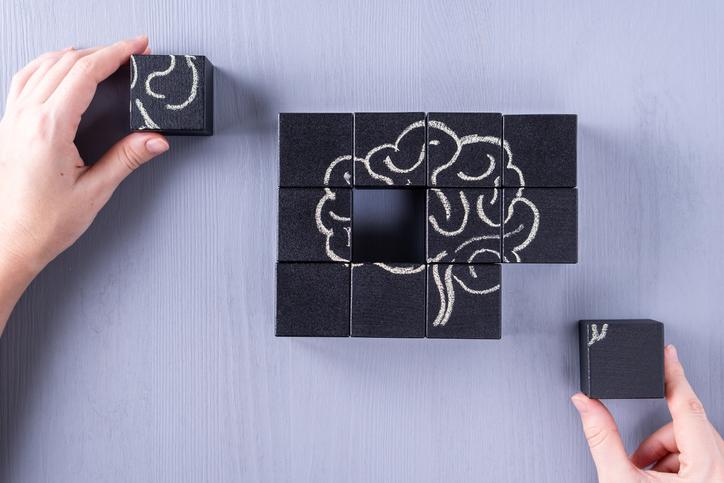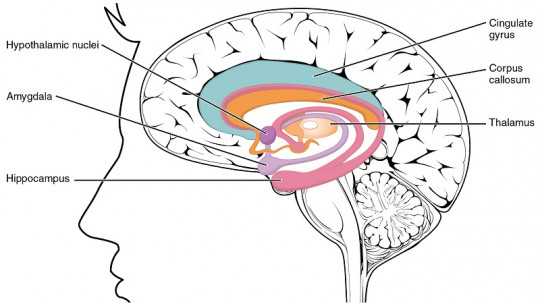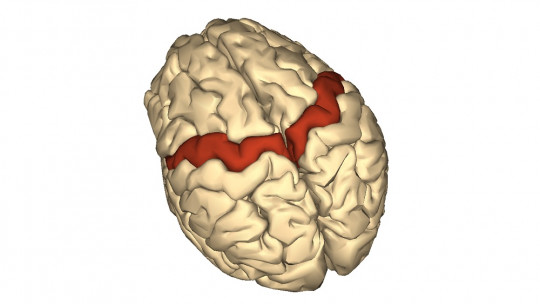Have you seen the movie Ghost? Do you remember the last scene? The one in which the soul of the protagonist walks away saying: “It’s wonderful, Molly, the love you have inside you. It will make you happy.” If you answered “yes”, you have just experienced a false memory phenomenon induced by misleading information. In reality, the protagonist says: “It’s wonderful, Molly, the love you have inside you. Always carry it with you.”
Do you want to know why this happens? The main cause is that there are no perfect memories because human memory, and also that of some animals, is highly suggestible. So, in this PsychologyFor article, we will tell you What are false memories in psychology and how do they work?<
What are false memories in psychology?
False memories are the product of a reconstructive and non-reproductive mechanism because, precisely, in our mind there is no photograph or film of the events we have witnessed. Therefore, memories are only reconstructions of the events we have experienced, so it is easy for a subject to create memories that are not actually real.
Thus, false memories are a phenomenon that causes let’s remember things that have never happened or that we remember them in a different way than they occurred. Let’s look at the different ways in which false memories manifest themselves:
- Made up: An event imagined with great richness of detail can leave an imprint on the brain very similar to that of a real event. This explains the difficulty of distinguishing between real and false memories.
- Based on an authentic memory but altered.
- Combined souvenir: memories are mixed and confused. These can refer to events that occurred at different times, but neutralizing the temporal information of each fragment, so that the invented memory is perceived in its entirety.
- Induced by a pleasant dream or by a frustrating and distressing nightmare. After a while, that experience is mistakenly perceived as real.
- induced by hypnosis: creates confusion and mixes authentic memories and inventions of the patient. The reconstructed memory can be accompanied by unpleasant and painful details that can have a great impact on the patient. If you want to know more, in this article, we tell you what hypnotherapy is and what it is for.
Why do I have false memories?
If you wonder why you remember things that never happened, read on to learn the main causes of false memories.
biological causes
The main biological causes of false memories are the following:
- Encephalitis.
- Wernicke-Korsakoff syndrome.
- Trauma and neurological dysfunction.
- Damage to the anterior communicating artery, in the Circle of Willis.
- Some types of drugs.
- Dreams.
- Memorization process.
In general, patients who have suffered brain injuries, especially to the prefrontal cortical regions, are prone to experiencing false memories.
Psychological causes
The origin of false memories can also be psychological. Let’s see what the most frequent psychological causes are:
- Influence of loved ones or authorized, for whom there is esteem and confidence.
- Insistent and suggestive therapy to recover lost memories, such as recovered memory therapy (RMT)
- Hypnosis<
How false memories work
If you want to learn how to identify false memories, the best way to do it is to understand how they work. Therefore, below, we show you the main theories that explain how this phenomenon works.
- Theory of the constructive view of memory: Promoted in the 1970s, this theory claims that reasoning influences memory, in contrast to the prevailing view that memory supports reasoning. Specifically, it highlights the role that personal desires and beliefs have when it comes to recovering memories.
- theory of errors source monitoring:e“Source control” is the process by which we distinguish false memories from true ones. An example could be the spontaneous distinction between what has been said (external source) and what has been thought (internal source). This theory holds that false memories are created through the comparison of memories and information that has been formed in memory encoding. This occurs when the information available is insufficient to attribute it to the exact source.
- Fuzzy tracing theory: is based on the assumption that memory is not recorded unitarily. The theory holds that in the moment an event is experienced, both details and meaning are captured. If the meaning of an event that has not really occurred is superimposed on the meaning of a lived experience, a false memory is formed.
Examples of false memories in psychology
How to recognize a false memory? Nothing better than knowing some examples to know how to identify it. We see some below:
- Children observing a series of objects of different lengths. The next memory of their size is distorted and they remember the objects larger than they really were.
- If a story is told repeatedly details are displayed in a distorted manner, but the basic track is preserved.
- After studying a list of words (e.g. nurse, hospital, sick, treatment
- etc ) these relate to a semantically associated word, but that was not present in the
- list (e.g. doctor).
- After reading a story subjects falsely recognize unsaid phrases that connect with the meaning of some passages.
- Crime witnesses They may falsely recognize events after receiving a hint, or falsely recognize the faces of innocent people who are the same gender as the suspects.

This article is merely informative, at PsychologyFor we do not have the power to make a diagnosis or recommend a treatment. We invite you to go to a psychologist to treat your particular case.
If you want to read more articles similar to What are false memories in psychology and how do they work? we recommend that you enter our Cognitive Psychology category.
Bibliography
- D’Ambrosio, A., Supino, P. (2014). The false ricordi syndrome. Things are so false, how to individuarli and ridurne il rischio








